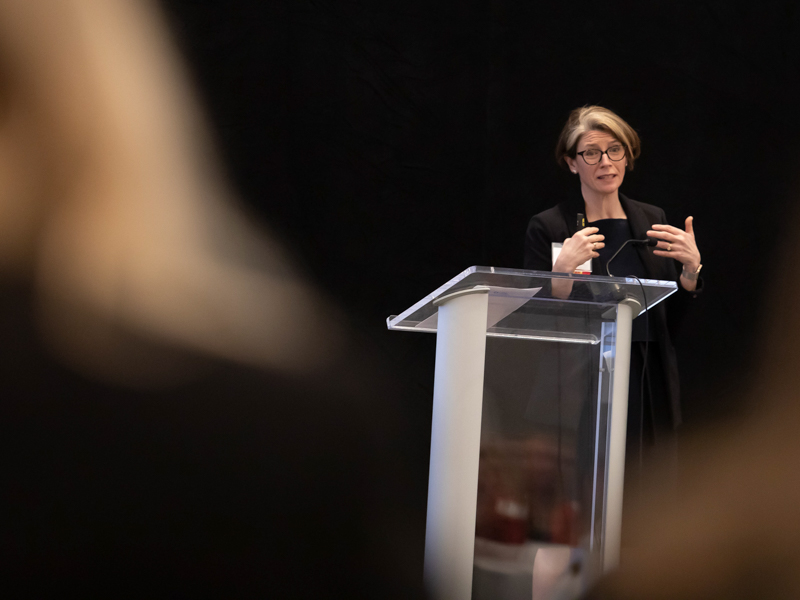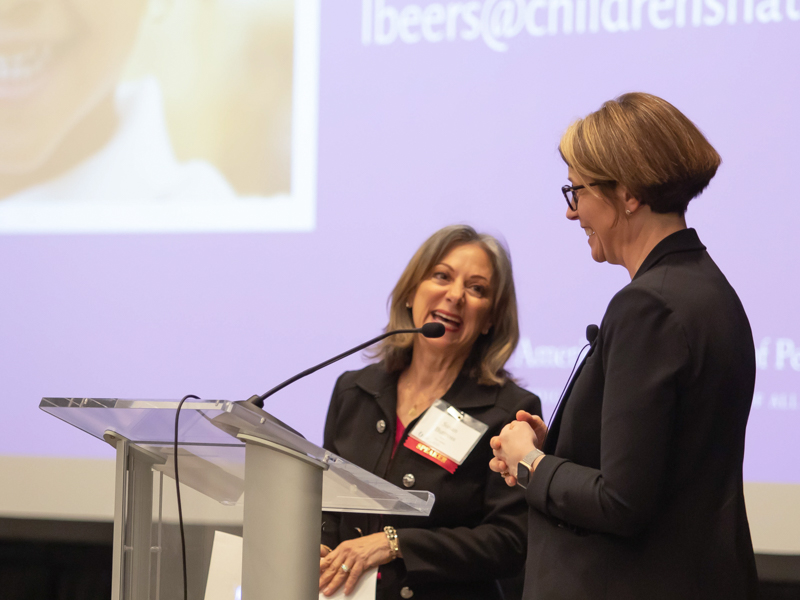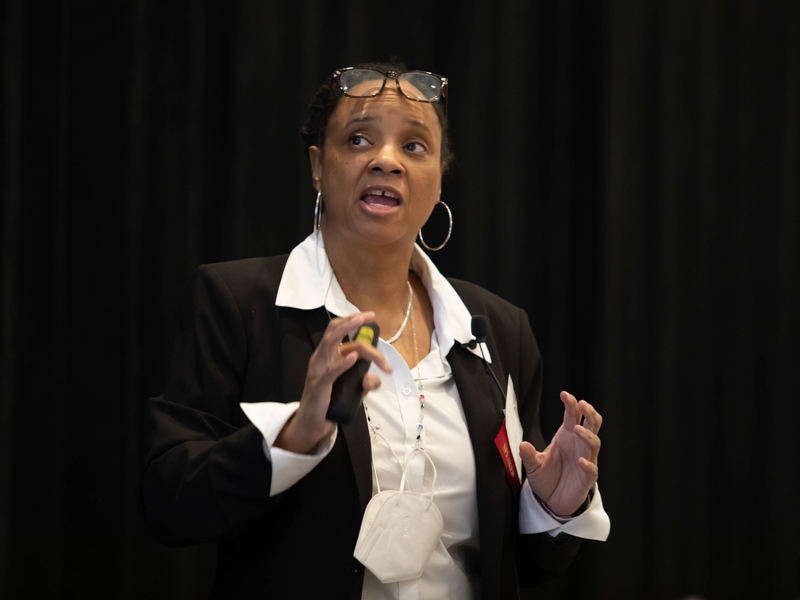AAP immediate past president: Bring strengths together to help families post-pandemic

The importance of interventions as the COVID-19 pandemic wanes was highlighted Friday in a Mississippi Thrive! summit featuring Dr. Lee Beers, immediate past president of the American Academy of Pediatrics.
The event, Early Childhood Health & Development in the COVID era, was the largest Mississippi Thrive! event and the first held since the COVID-19 pandemic began. More than 180 attended the speeches and panel discussions in person at The Refuge Conference Center in Flowood, and nearly 70 attended virtually.
“What Mississippi is doing to get kids access to care is amazing,” said Beers, professor of pediatrics and medical director for community health and advocacy for Children’s National in Washington, D.C., and the AAP’s leader during the pandemic’s early stages.

Noting the limits COVID-19 placed on children’s in-person education and getting needed health care, Beers said the path forward “has no simple solutions. It means that we all have to come together and figure out how to make things better.”
The Mississippi Thrive! Child Health Development Project, an innovative partnership between Mississippi State University’s Social Science Research Center and the University of Mississippi Medical Center, has been working with families, childcare centers and health clinics across the state to gauge the health and development of children ages 5 and younger and to link those in need to services.
Mississippi Thrive! is funded through a $17.44 million grant from the U.S. Health Resources and Services Administration.
“We are so very excited and honored to host Dr. Beers as well as state leaders including Lt. Gov. Delbert Hosemann and state Sen. John Horhn, and leaders in education and medicine,” said Dr. Susan Buttross, professor of child development and principal investigator of the project at UMMC. “Bringing together a diverse group that shares a commitment to early childhood development is resulting improvements for the state’s children.”
Dr. Tenette Smith, executive director of elementary education and reading within the Mississippi Department of Education, said the state is already reaping benefits in kindergarten readiness.

“Mississippi won’t give up,” she said, noting that the state was ranked 50th nationally in K-12 achievement in 2013 but by 2021 had moved up to 35th. “What we are doing is having an impact.”
The state has seen a 13.5 percent drop in kindergarten readiness since before the pandemic, as families have coped with COVID.
COVID-19 has been “particularly hard on families with young children,” Beers said. “The brain’s development starts in the perinatal period with 90 percent of its development being in the first five years of life.”
During the pandemic, “lots of kids lost a loved one,” she said. “There was disruption of education, and I'm worried about children with special health care needs.”
Recovering from the pandemic may look different for each child, Beers said. “We know that intervention works, and the earlier the better.”
Positive relationships in and outside the home can make a huge difference in the resilience of children, she said. “We really do focus on what’s wrong, but there is so much strength here. We have to come together and bring our strengths together. That’s how we can do better for families.”


